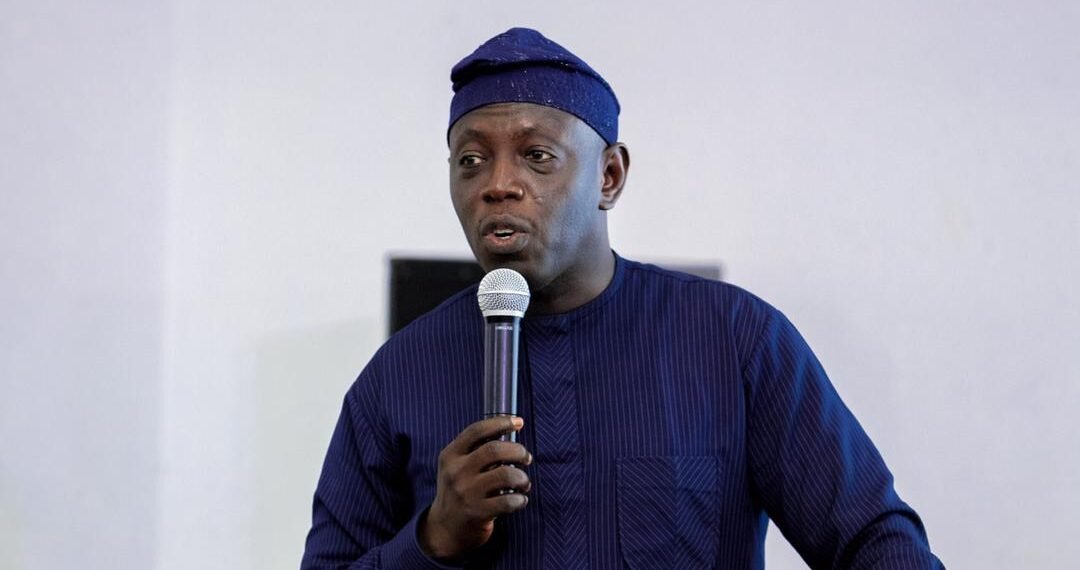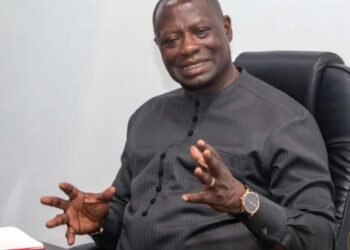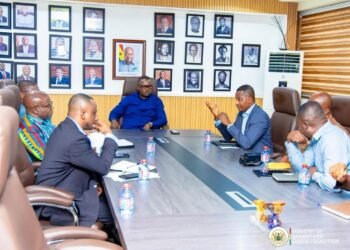Professor Isaac Boadi, the Dean of the Faculty of Accounting and Finance at the University of Professional Studies, Accra (UPSA), has argued that the recent revocation of 300 mining licenses by the Ministry of Lands and Natural Resources is not enough to effectively address the illegal mining crisis.
He cautioned that the government’s approach needs to be more comprehensive and address the deeper underlying issues regarding the illegal mining otherwise referred to as “galamsey”.
“Those who are trying to use the law to work are the ones that you can have in your books. But what about the illegal miners. They don’t queue at the commission. They don’t come for licenses. They don’t take licenses. They go and dig in the bush.”
Professor Isaac Boadi
According to Professor Boadi, the revocation of 300 licenses, while a seemingly decisive step, may only be “locking the front gate” while leaving the “back gate” open for the illegal miners to continue their operations unabated.
Professor Boadi’s analysis suggests that the government’s actions may be primarily targeting the visible, regulated aspects of the mining industry, while failing to address the more elusive and deeply rooted issues of illegal mining operations in rural the communities.
Scourge of Galamsey

The challenges of galamsey have had a profound impact on Ghana, with devastating consequences for the country’s natural resources, water bodies, and the overall well-being of local communities.
As Professor Boadi noted, “I see the water turbidity at that level. That’s the evidence I have. Once I see clean water, I know something’s been done.”
This observation underscores the pressing need for comprehensive and sustained efforts to tackle the galamsey crisis.
The government in its current initiatives to combat the menace, has revoked about 300 licenses of the small-scale miners over non-compliance with environmental and safety standards. This initaitve reflects the government’s sweeping reforms aimed at curbing illegal mining.
Holistic Approach

Professor Boadi’s critique of the government’s approach suggests that a more holistic strategy is required to effectively curb the galamsey menace. As he warned t, “The administration must not play, I mean, joke with this issue. Whether NPP or NDC.”
This highlights the need for a sustained, non-partisan commitment to addressing the root causes of illegal mining, including the economic incentives, the complicity of local authorities, and the lack of viable alternative livelihoods for communities dependent on the illicit activities.
Enforcement and Community Engagement

While the government’s efforts to revoke licenses and enhance enforcement measures are commendable, Professor Boadi’s perspective underscores the importance of complementing these actions with a stronger focus on community engagement and addressing the underlying drivers of galamsey.
As the professor suggested, the administration should not limit its approach to the “visible” aspects of the mining industry but instead venture into the remote areas where illegal operations thrive.
This would require a more robust intelligence-gathering network, collaborative efforts with local leaders, and the implementation of sustainable development initiatives that provide alternative economic opportunities for affected communities.
Comprehensive and Sustained Action

Professor Boadi’s critique serves as a wake-up call for the government to reevaluate its strategy and adopt a more comprehensive, long-term approach to combating the galamsey scourge.
The revocation of 300 licenses, while a step in the right direction, may only address the tip of the iceberg, leaving the deeper-rooted issues unresolved.
This call for a non-partisan, sustained commitment to addressing the galamsey crisis from Prof. Boadi underscores the gravity of the situation and the urgent need for a holistic, community-centric solution that tackles the problem at its core.
Only through such a multifaceted, collaborative approach can the government truly address the environmental, social, and economic consequences of illegal mining and secure a sustainable future for Ghana’s natural resources and its people.
READ ALSO : Finance Ministry Consults, Ahead of 2026 Budget Reading























